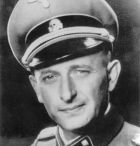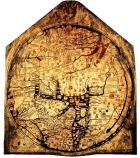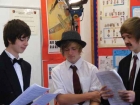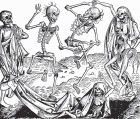Substantive concepts
Substantive concepts are those concerned with the subject matter of history – the substance about which students are learning. Some materials in this section focus on the teaching of highly specific contextualised terms and others explore more general strategies for building and reinforcing knowledge of recurring concepts over time. Read more
Sort by:
Date (Newest first) | Title A-Z
Show:
All |
Articles |
Podcasts |
Multipage Articles
-

Polychronicon 141: Adolf Eichmann
ArticleClick to view -

Polychronicon 146: Interpreting the history of 'big history'
ArticleClick to view -

Power, authority and geography
ArticleClick to view -

Ranking and classifying: teaching political concepts to post-16 students
ArticleClick to view -

Reading? What reading?
ArticleClick to view -

The Holocaust in history and history in the curriculum
ArticleClick to view -

Thinking makes it so: cognitive psychology and history teaching
ArticleClick to view -

Transforming historical understanding through scripted drama
ArticleClick to view -

Triumphs Show 158: interactive learning walls and substantive vocabulary
ArticleClick to view -

What Have Historians Been Arguing About... the long-term impact of the Black Death on English towns
ArticleClick to view -

‘Weaving’ knowledge
ArticleClick to view

